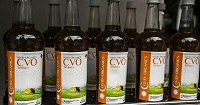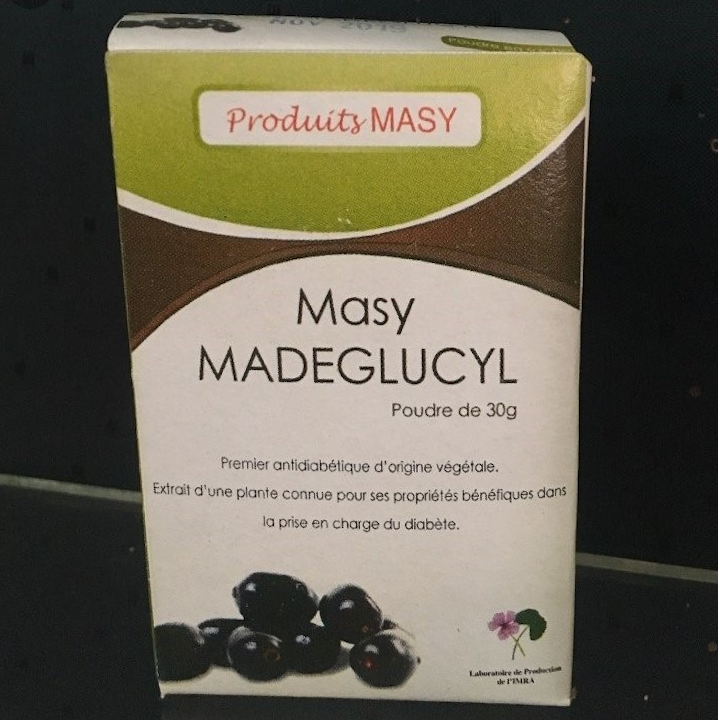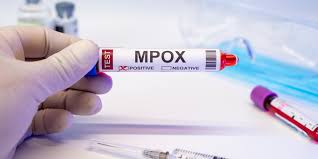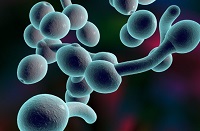

Given the absence of a specific treatment in the management of the COVID-19 pandemic, Madagascar began very early on a dual therapy protocol based on the 4-aminoquinoline antimalarial, chloroquine, and the macrolide antibiotic, azithromycin, in association with treatments derived from traditional pharmacopoeia. The decision to promote “Covid-Organics” (CVO) was prompted because of Madagascar’s rich biodiversity and the central role of its traditional practitioners in the healthcare system.
Under presidential demands, and faced with the growing use of traditional medicines in Africa, the Malagasy Institute of Applied Research (IMRA) and the National Pharmacology Research Centre collaborated in order to conduct studies and set up a research protocol on Artemisia annua already known for treating malaria. This led to the formulation of an improved traditional drug now popularly known as “Covid-Organics,” made up of artemisia and other endemic medicinal plants, such as ravintsara.
A novel research protocol enabled the IMRA team, which had been working on Artemisia for some time, to investigate its efficacy in treating COVID-19. This is yet another discovery for this research centre, which has some fifty remedies to its credit, including the antidiabetic drug Madeglucyl®, a tazopsine derivative used as a prophylactic for malaria, ODY VATO against kidney stones amongst others.

From humble beginnings to a modern research institute
In 1958, with a personal investment derived from royalties obtained through his previous discoveries, Dr Albert Rakoto-Ratsimamanga founded the IMRA. Predominant on Malagasy soil, artemisia has already been the subject of more than twenty studies in Madagascar where it was introduced in 1975 by Dr Rakoto-Ratsimamanga to treat malaria. Its medicinal form is also readily available in pharmacies around Madagascar.
The IMRA is nationally and internationally recognised and has been granted the status ofregional research centre by the African Union.Found in Antananarivo, the IMRA is composed of a team of about 150 permanent staff and offers seasonal employment to over 15000 rural villagers. Its research focuses on phytochemistry, parasitology, cellular pharmacology, experimental diabetology, pharmacodynamics, toxicology and analytical chemistry of essential oils. The IMRA was recognized as being of public utility by the Government Council on 2 October 2012. Much of IMRA’s success comes from respecting Malagasy traditions and cultural norms and using rather than resisting them. Strengthening the collaboration between modern physicians and traditional healers has been the goal of this institute since day one. On the health delivery side, in medically pluralistic societies such as Madagascar where over 80% of the population uses traditional medicines as a first source of treatment, local populations are more likely to accept phytomedicines that are cheap, non-invasive, less prone to give side effects, and already trusted in a low-resource setting.
Potential of the endemic flora
The development of CVO is a perfect illustration of the philosophy of Dr Rakoto, whose research focused on the combination of traditional and modern medicine. Part of IMRA’s success in this regard seems to have come from Dr Rakoto’s combination of foreign scientific training and experience with deep local knowledge. He was very well keen of the exceptional nature of the Malagasy indigenous flora, of which he knew better than anyone else its potential benefits. Regarded as the pioneer of science in Madagascar, this researcher – who published some 350 scientific articles – declared: “We must move forward at our own pace, we must above all have confidence in ourselves and in the therapeutic virtues of nature. For nature and man are one.”
Being of noble birth, Dr Rakoto was one of the few Malagasy of his generation who was educated abroad, and received doctorates in both science and medicine at the Université de Paris. After working as an assistant at the Paris Faculty of Medicine, he was one of the founders the Centre National de la Recherche Scientifique, CNRS, (the National Centre for Scientific Research). Also having decided to focus his research on the medicinal properties of the Malagasy flora, he was also the first to consider how to integrate it into molecular medicine.
Controversy surrounding the efficacy of CVO
While the « improved traditional remedy » against the Covid-19 announced by the Madagascan president, Andry Rajoelina, has already gone worldwide, the international scientific community remains sceptical about its effectiveness. Before cooperating with Madagascar, the World Health Organisation (WHO) issued a warning against the use of an untested COVID-19 remedy. At the time, CVO’s efficacy and safety was tested on fewer than 20 people within a period of three weeks. In order to meet established scientific norms, the 2 parties later agreed on a partnership for CVO to be registered for WHO Solidarity trials, an international program for speeding clinical trials on COVID-19 treatment candidates. WHO further maintains that there is no treatment to date against COVID-19, neither curative nor preventive. The organization equally adds that the only solution to safeguard against it, is the strict respect of barrier measures, good hygiene practice and social distancing.
The African Union also demanded detailed scientific data on CVO for analysis by the African CDC after it had been informed by Madagascan authorities about the herbal remedy. In April, the Economic Community of West African States (ECOWAS) denied ordering a package of CVO after media reported otherwise and said the West African Health Organization (WAHO) would only endorse products shown to be effective and safe for use through well conducted studies. Also, there are concerns over widespread usage of Artemisia about accelerating drug resistance toward Artemisinin-based combination treatments for malaria. However, there are conflicting findings that the use the whole leaf or plant matter, as is the case with CVO can overcome such resistance.
Nonetheless, Madagascar through the IMRA has officially launched « Covid-Organics » in the fight against the new coronavirus. Whether or not the already highly hypothetical approval of international institutions is realized, CVO is bound to change a lot in Africa and probably worldwide too. WHO predicted that an estimated 83,000 to 190,000 people in Africa could die from COVID-19 and that 29 to 44 million could be infected in the first year. This could occur, in case containment measures fail, according to a study carried out by the WHO regional office for Africa. While the institution continues to demand « scientific » evidence, many Africans already seem convinced of the effectiveness of this herbal tea which is already widely used in Madagascar.
Pan Africanist front in favour of CVO
“(…) Since scientists have not yet developed an effective drug, accepted by all, we believe that all the trials that are done elsewhere and that have given some signs of effectiveness, such as the protocol of Prof. Raoult or the product of Madagascar, we think that in a hospital environment, under control, we must try them, too, to try to save lives, « Congolese President Denis Sassou-Nguesso told RFI and France 24. « It is the reaffirmation of the pan-Africanist posture of Denis Sassou-Nguesso by participating in the promotion of an African product », commented recently Bibane Itoua, journalist at Télé Congo after the reception by Congo-Brazzaville of a first batch of this herbal tea supposed to cure coronavirus. Pan-Africanism affirmed by other leaders including Félix Tshisekedi from the DRC, Embalo Cissoko from Guinea-Bissau, Mamadou Issoufou from Niger and Teodoro Obiang Nguema Mbassogo from Equatorial Guinea.
Pan-Africanism is probably the key factor that was lacking when WHO denied the effectiveness of the Gabonese professor Donatien Mavoungou’s Immunorex DM28 against AIDS, who died last February. If we can blame leaders like Mobutu for the financing of a space program in the midst of an economic crisis and Yahya Jammeh for his product against AIDS, Andry Rajoelina is now hailed for having crossed the Rubicon of self-determination to show Westerners that Africa can, and beyond setbacks, play a role in containing the pandemic. « Whatever may be said of this gentleman, at least he has taken the courage to promote his researchers. The big promoters of western inventors are first and foremost their leaders, « said Willy Ngoyi Nzamba, a Congolese civil society actor. Ngoyi also believes that it will now also be necessary to take into account the protocol existing in traditional medicine in Africa, because even Westerners have passed through it. A barely veiled allusion to works such as the rabies vaccine of the French scientist Louis Pasteur who saved his compatriot, the young Joseph Meister in the mid-1800s. At the end of the 17th century, on the other side of the English Channel, Edward Jenner had developed the smallpox vaccine. Thus, on May 8, the date of the celebration of the 226th anniversary of the execution of Antoine Laurent de Lavoisier, it may be high time for Africa to rely on this formula of the former French chemist: “Nothing is lost, nothing is created, everything is transformed.” In other words, rather than abandoning them and forgetting in the darkness of history, Africa would now benefit from making good use of the local traditional pharmacopoiea.
References
- M Puri, H Masum, J Heys, P A Singer. Harnessing biodiversity: the Malagasy Institute of Applied Research (IMRA). BMC International Health and Human Rights 2010, 10(Suppl 1):S9
- Coronavirus: Madagascar’s ‘Covid-Organics’ born from local tradition. https://www.theafricareport.com/27203/coronavirus-madagascars-covid-organics-born-from-local-tradition/
- Le Covid-Organics de Madagascar face au scepticisme de l’académie française. https://www.financialafrik.com/2020/04/22/le-covid-organics-de-madagascar-face-au-scepticisme-de-lacademie-francaise/






